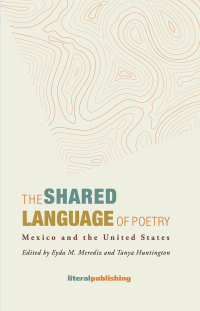The assemblage of different languages—Spanish, English and Indigenous, as well as in-between inflections—shows the complexity of linguistic and cultural connections between and within the two nations. The University of Maryland, College Park, along with Georgetown University, the Mexican Cultural Institute, and the Library of Congress came together to organize the original symposium, held in November 2021 in Washington, D.C. and College Park, Maryland. As co- organizers Eyda M. Merediz and Gwen Kirkpatrick put it in the introduction to this volume, “To work in poetry is to navigate manifold meanings, unanticipated relationships between joy and sorrow, play and lamentation, the everyday and the sacred, high and low, the oral and the written.”
Here, fourteen scholars and poets from Mexico and the United States attest to the power of contemporary poetry through essays on topics ranging from “Poetic Breadth in the 21st Century” to “Translation in a Global World,” from “Representing and Defying Affect through the Body Poetic” to the “Linguistic and Geographic Remappings of Indigenous Poetics.” These invigorating texts are complemented by an anthology of verse published in the original languages, as well as in English or Spanish translation. The volume’s intellectual and linguistic diversity offers a vibrant picture of the power of poetry today and for all time.


